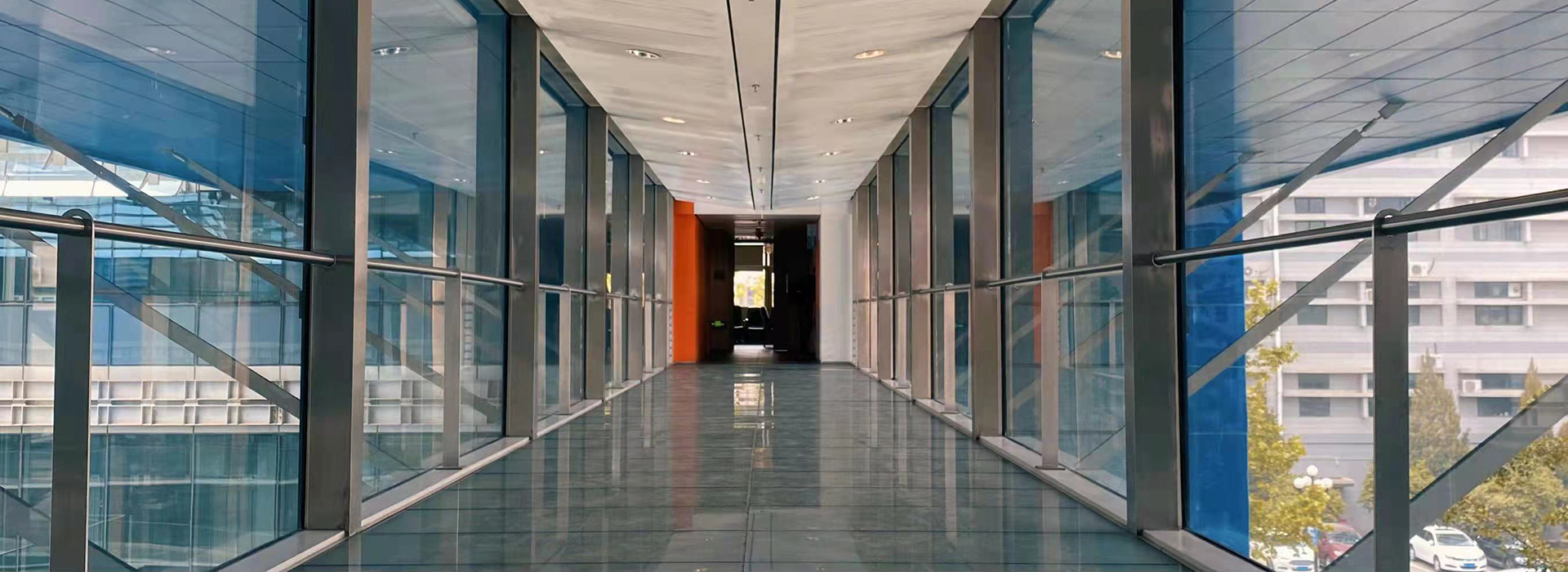On June 3rd, the kick-off meeting and annual meeting of the Sino-Norwegian Cooperation Project on Capacity Building for Reducing Plastic and Microplastic Pollution (SINOPLAST Ⅱ) were successfully held at the School of Environment (SOE), Tsinghua University. The meetings were organized by the Basel Convention Regional Center for Asia and the Pacific (hereinafter referred to as BCRC China) at SOE.
Attendees included Yang Bin, Vice President of Tsinghua University, Andreas Bjelland Eriksen, Minister of Climate and Environment of Norway, Liu Shuming, SOE Dean, Li Jinhui, Executive Director of BCRC China and Professor at SOE, and over 40 participants including representatives from the Norwegian Ministry of Climate and Environment, the Norwegian Embassy in China, the Department of Solid Wastes and Chemicals at the Ministry of Ecology and Environment, the National Marine Environmental Monitoring Center, the Research & Development Affairs Office and Office of International Affairs at Tsinghua University, the participating units, and the demonstration cities of the first phase, as well as leaders and faculty members at SOE. Prior to the meeting, Yang Bin and Eriksen held bilateral talks.
The kick-off meeting included an opening ceremony and a technical exchange session. Li Jinhui presided over the opening ceremony, with Yang Bin and Eriksen delivering opening remarks.
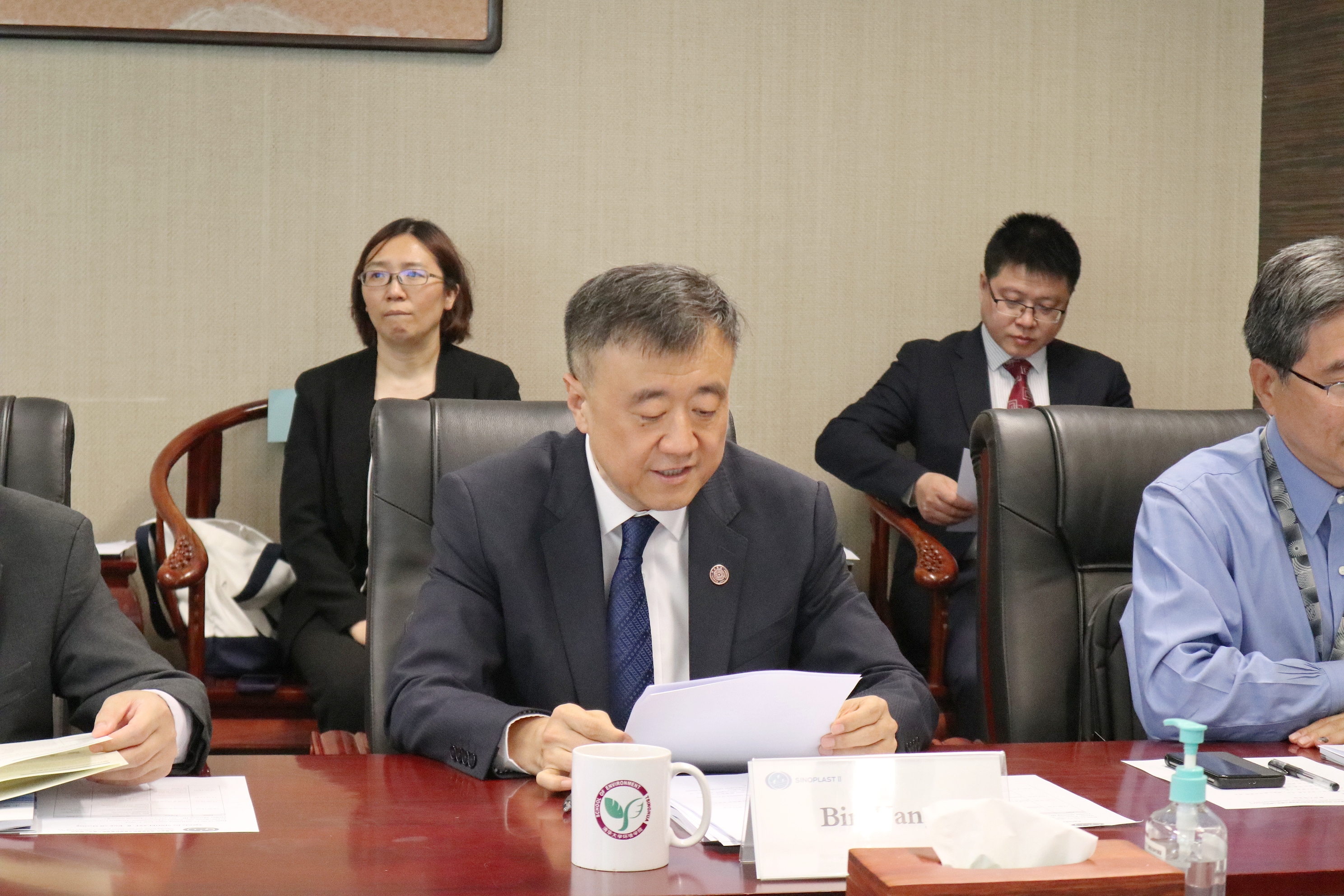
Speech by Yang Bin
In his speech, Yang Bin stated that the BCRC China, located at SOE, provides critical technical support to the Chinese government in addressing global environmental crises such as climate change and pollution control, particularly in the areas of chemicals and waste management. He also mentioned that Tsinghua University collaborates with numerous world-class universities, research institutions, and multinational enterprises, establishing joint research institutes, signing framework agreements, and conducting collaborative research projects. "This strong foundation will facilitate the second phase of the project in better addressing the issue of plastic waste pollution. Through our joint efforts on this project, we will take a significant step toward building a cleaner and healthier planet for humanity."
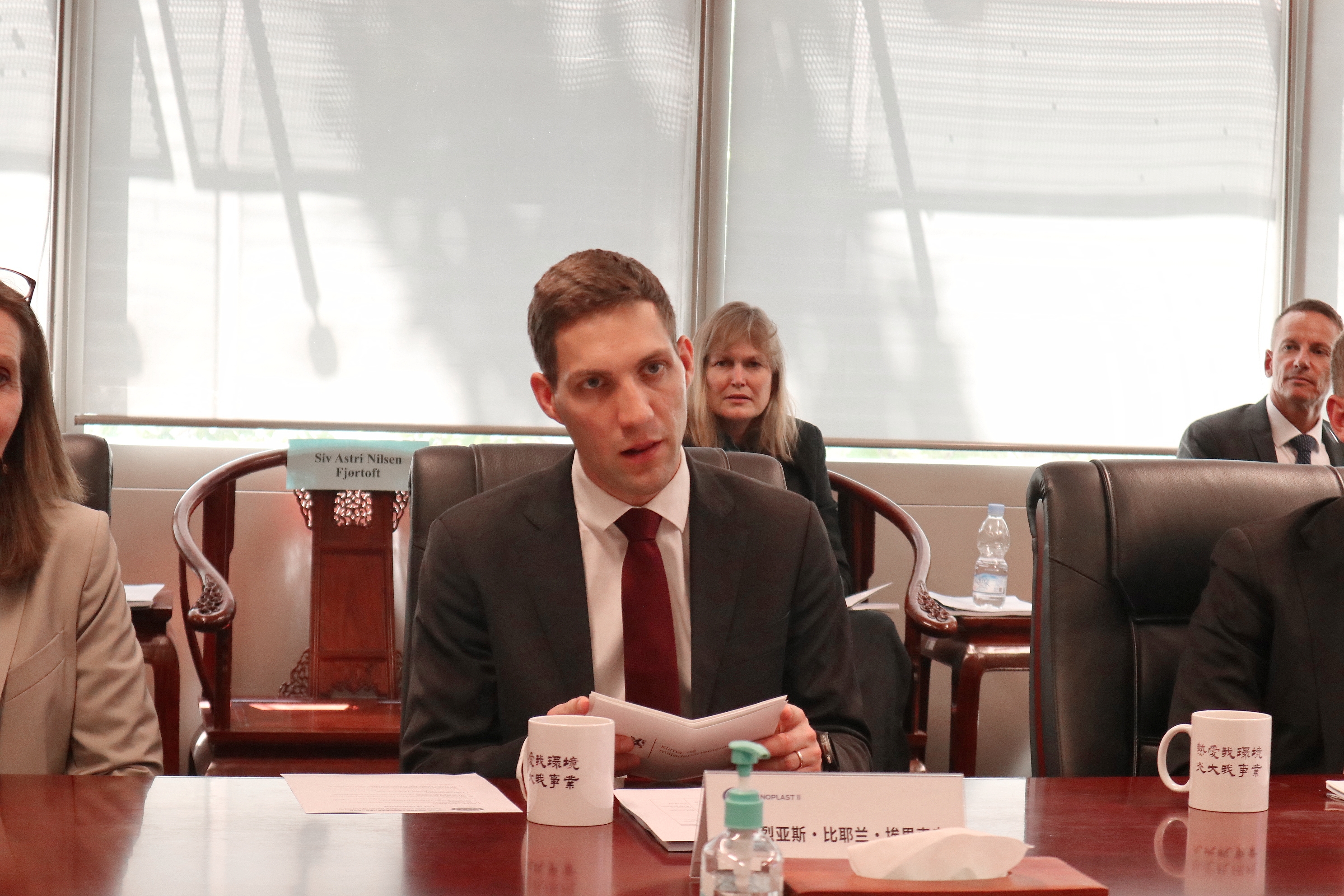
Speech by Eriksen
Eriksen stated that plastic pollution has become one of the most concerning issues worldwide. By the end of 2024, the international community is expected to achieve a legally binding agreement to address plastic pollution. He looks forward to working together with China and other key countries to achieve this goal. "Today, as we launch the second phase of the project, it also marks a bilateral dialogue between the environmental departments of China and Norway. Through this project, we are showing the world our commitment to addressing plastic issues and seeking systematic solutions, collectively working towards reducing plastic wastes."
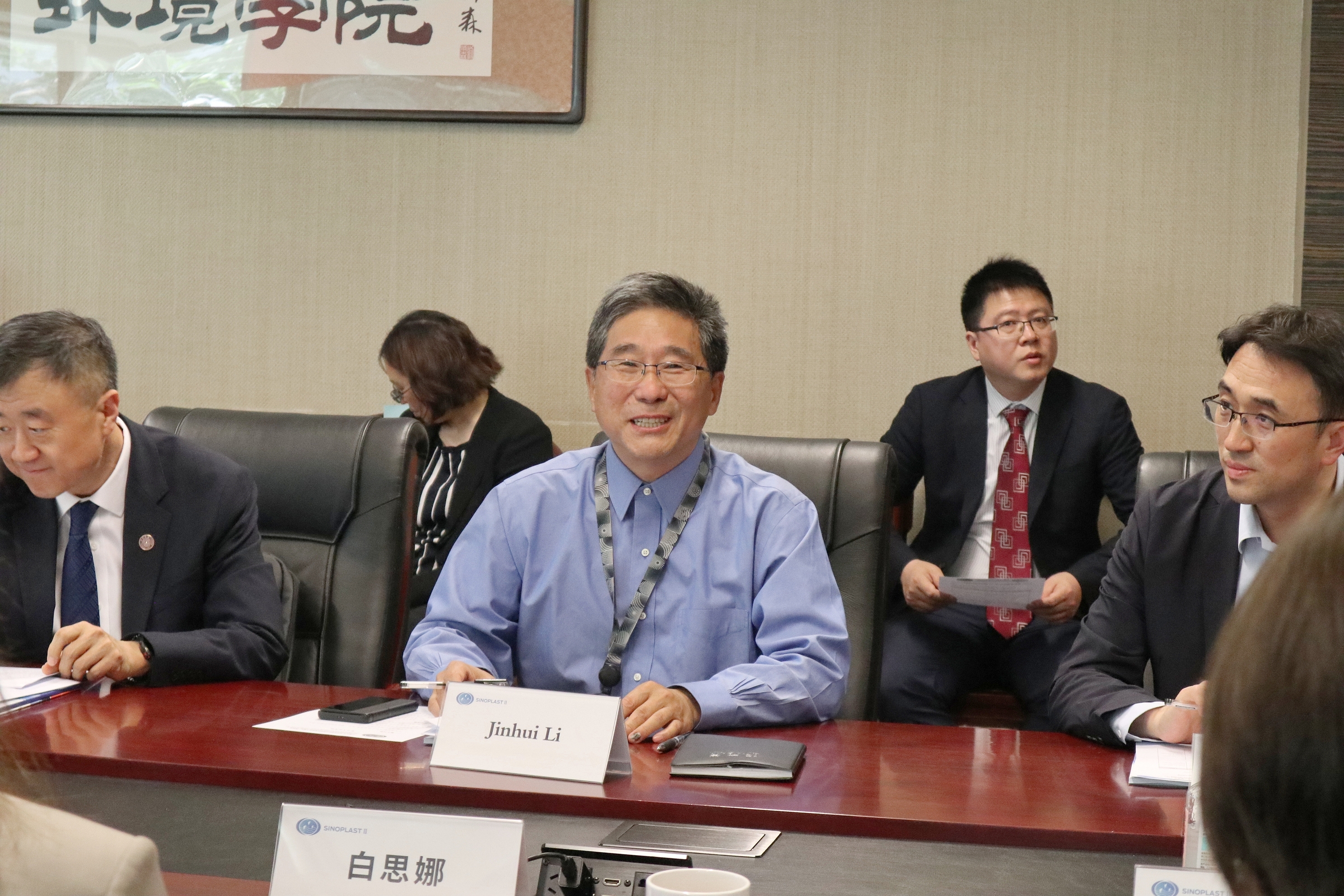
Li Jinhui presides over the meeting
Li Jinhui noted that the first phase of the project achieved tremendous success, expressing gratitude to the Norwegian guidance and funding, as well as the efforts of all project partners. "The second phase was approved in April this year. China and Norway have maintained long-term cooperation. We believe that the second phase of the project, serving as a platform, will continue to provide valuable resources for both countries in plastic pollution control, environmental protection, and other related areas."
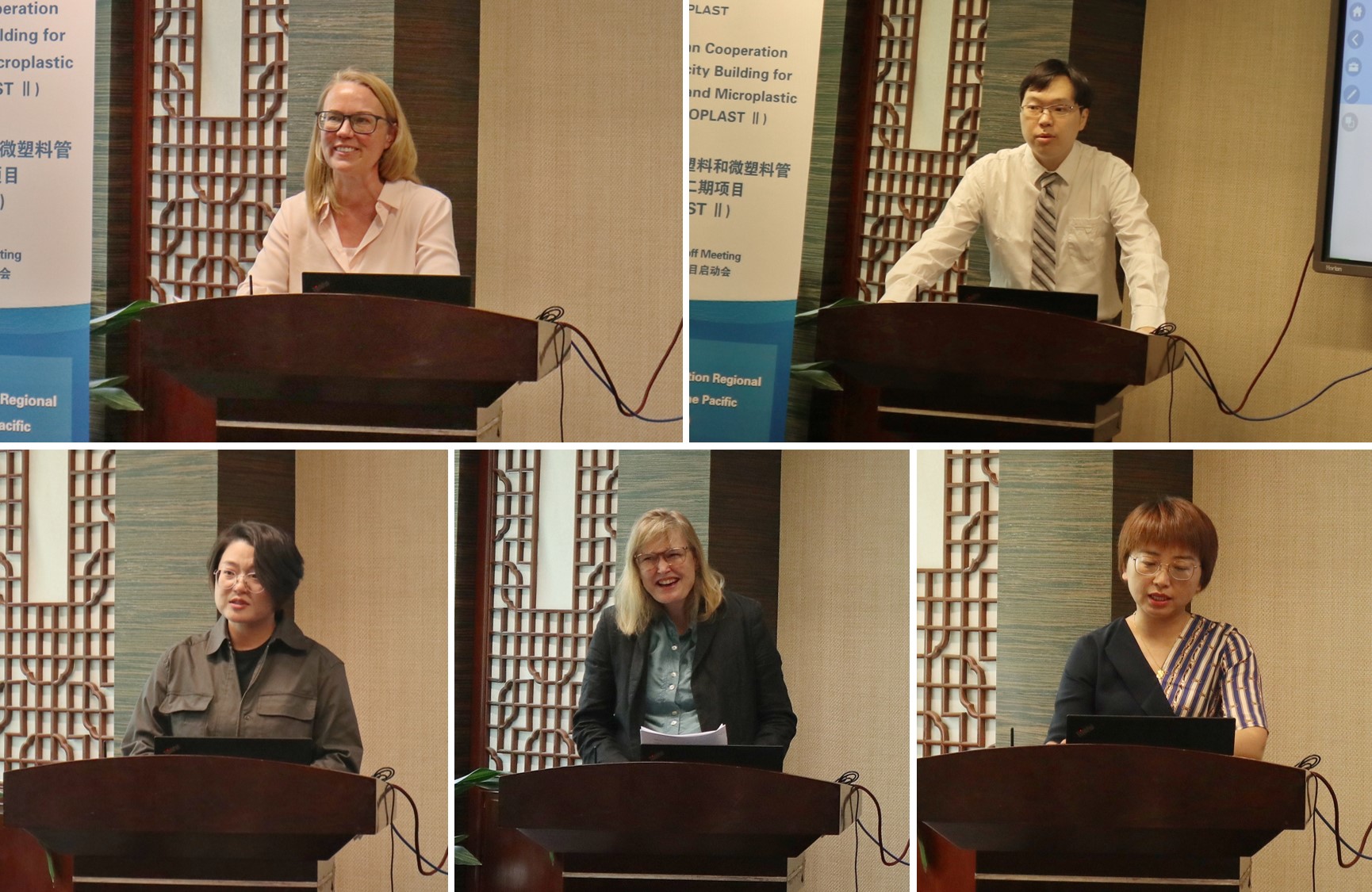
Technical Exchange Reports(from left to right, from top to bottom: Kathinka Fürst, Wang Ziyuan, Jin Shuaichen, Silje Rem, Zhao Nana)
During the technical exchange session, Kathinka Fürst, Senior Project Officer at the Norwegian Institute for Water Research, presented an overview of the second phase of the project. Wang Ziyuan, First-level Principal Staff Member of the Solid Waste Division at the Department of Solid Wastes and Chemicals, Ministry of Ecology and Environment of China, discussed China's action plan on plastic pollution control and related measures. Jin Shuaichen, Engineer at the National Marine Environmental Monitoring Center, Ministry of Ecology and Environment of China, presented China's marine waste monitoring system and governance strategies. Silje Rem, Senior Advisor at the Norwegian Environment Agency, discussed the status of plastic pollution control in Norway and progress in INC negotiations. Zhao Nana, Assistant Director of BCRC China, presented on China's "Zero Waste Cities" initiative and plastic pollution management efforts.
The annual meeting reviewed and discussed the project's results framework and the upcoming work schedule. This meeting marks the beginning of the second phase of the project.
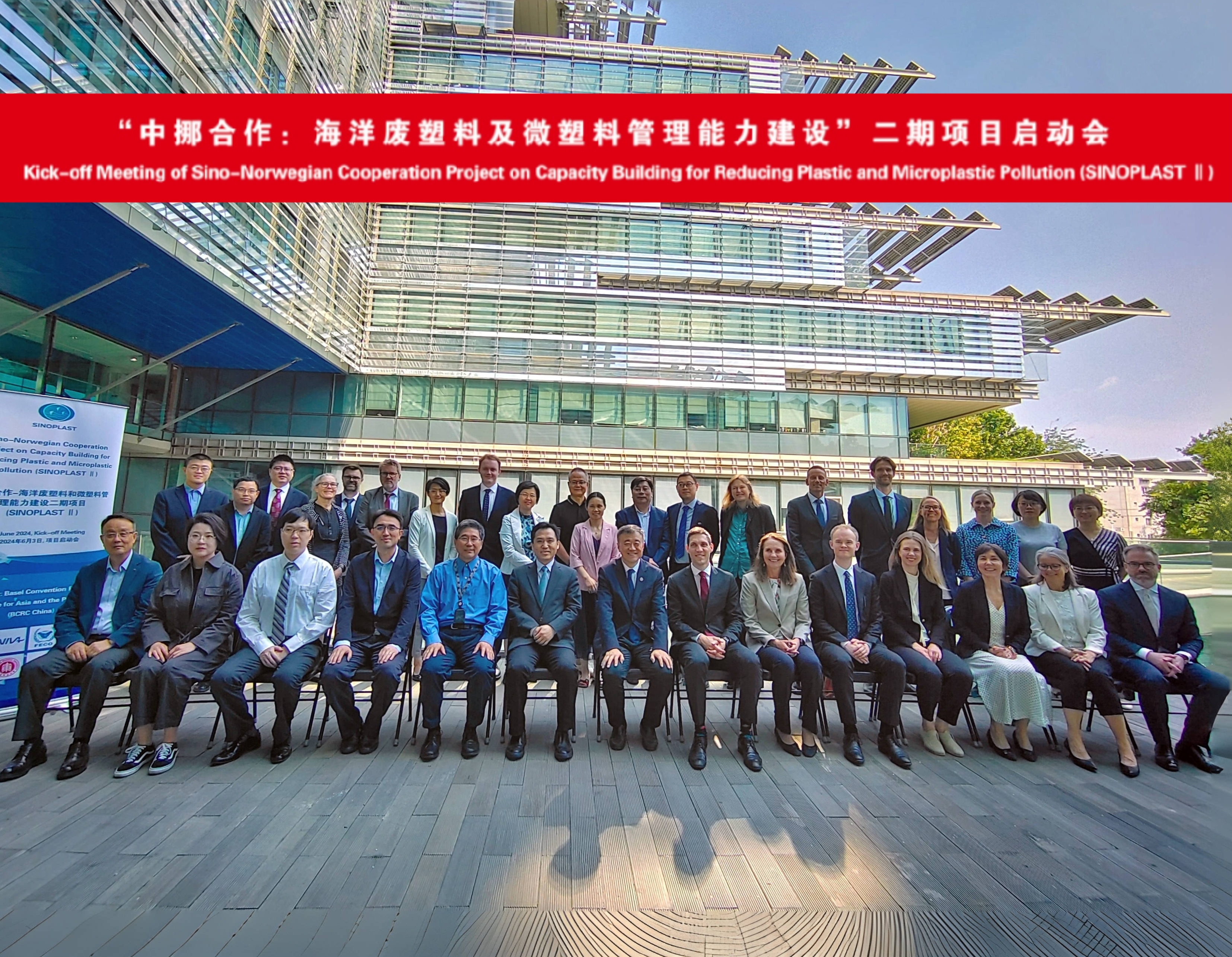
Group photo at the kick-off meeting
The "Sino-Norwegian Cooperation Project on Capacity Building for Reducing Plastic and Microplastic Pollution" was approved through a cooperation agreement signed by the Chinese Ministry of Commerce and the Norwegian Embassy in China. The Ministry of Ecology and Environment acted as the applicant, with the BCRC China as the executing agency and the Norwegian Institute for Water Research as a co-executor. The first phase was approved on November 29, 2019, and concluded on June 30, 2023. As China's first bilateral project about land and ocean plastic pollution prevention and control, the first phase made a significant contribution to enhancing China's capabilities in managing marine plastic and microplastic waste. The second phase was approved on April 29, 2024, with a planned execution period from May 2024 to December 2027. The project is funded with 10.5 million Norwegian kroner from the Norwegian government and 10 million RMB from China, aiming to enhance China's integrated management capabilities for plastic waste across land and ocean. It aims to contribute to global efforts in plastic pollution control. The Chinese project partners include: Solid Waste and Chemicals Management Center, Ministry of Ecology and Environment; Foreign Environmental Cooperation Center, Ministry of Ecology and Environment; State Key Laboratory of Estuarine and Coastal Studies of East China Normal University; Jiangxi Green Recycling Co., Ltd.; and Shanghai Magic Photoelectric Technology Co., Ltd. The Norwegian leading unit is the Norwegian Institute for Water Research (NIVA), with participation from the Norwegian Environment Agency. The project will continue to conduct plastic pollution management activities in the demonstration cities of the first phase, namely Shenzhen and Sanya.



